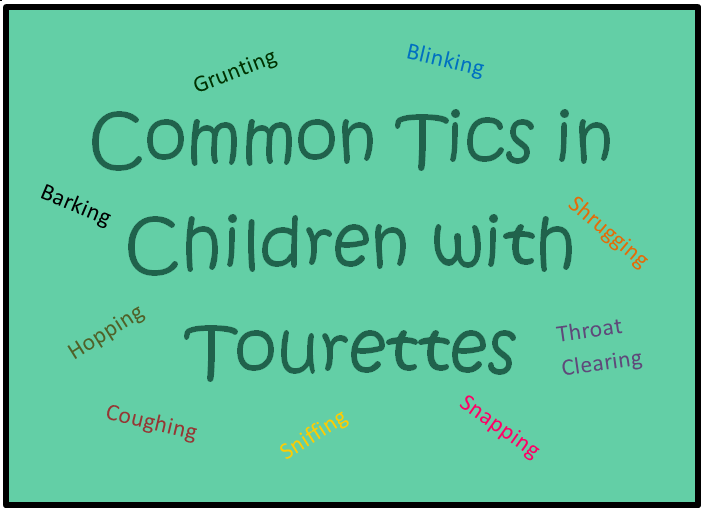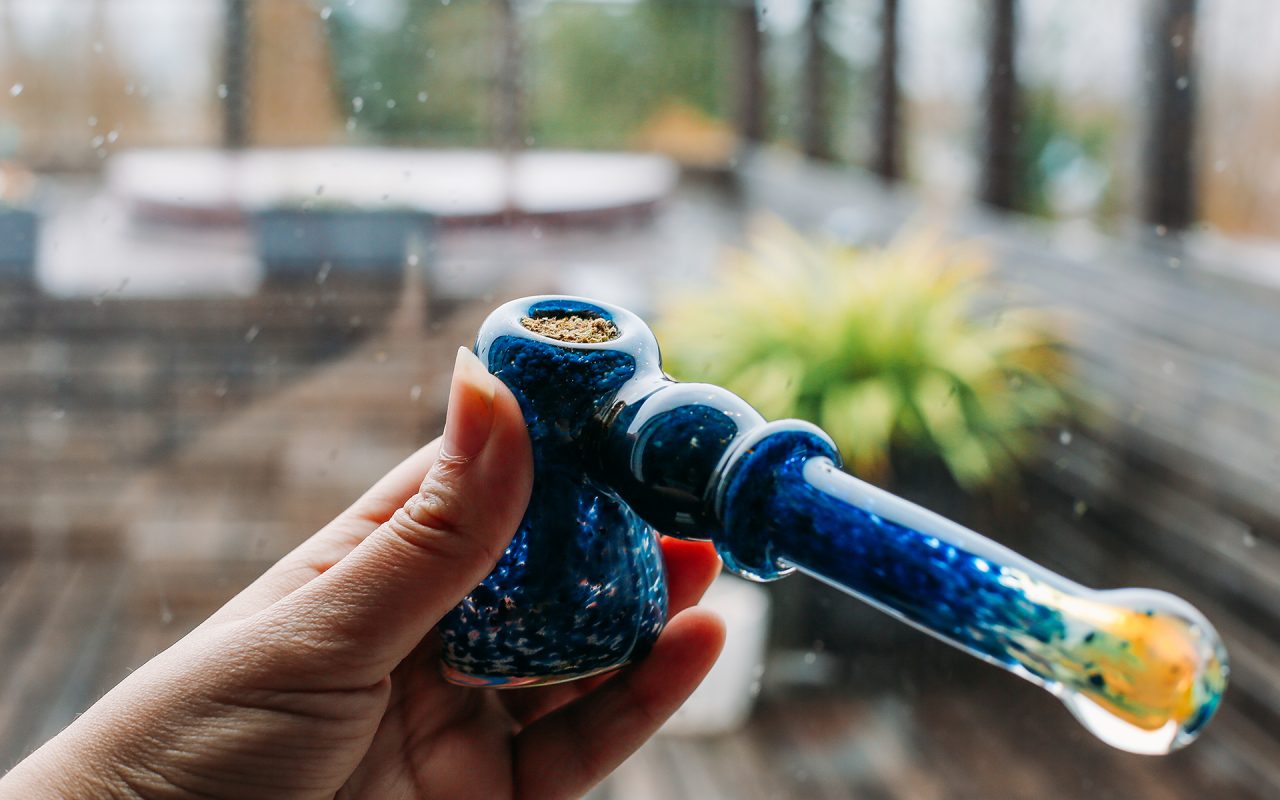
Background
The US Center for Disease Control states that 0.3% of children have Tourette Syndrome (or Tourette’s). This equates to 138,000 diagnosed cases based on parental reporting. However, the exact number among all ages is unknown. Tourette Syndrome is a neurological disorder that affects the basal ganglia, the part of the brain responsible for voluntary motor functions. Though there are a few medicinal treatments available research has shown that medicinal cannabis could be a safer option for treatment in people with Tourette Syndrome. What follows is an overview of the disorder and information on how THC and CBD can help patients live more comfortable, “normal” lives.
Tourette Syndrome: What is it?
As mentioned above, Tourette’s is a is a condition of the nervous system marked by uncontrollable sudden movements, sounds, twitching, or compulsions. The symptoms of the disorder can range from mild to severe, and are often observed in the form of vocal or motor “tics.” Tourette Syndrome is estimated to affect 1 in 160 children in the US between 5-17 years old. Boys are at least three times likely than girls to be diagnosed with Tourette Syndrome.
What Causes Tourette’s?
Unfortunately, no one can point to a single “cause” for Tourette Syndrome, but researchers do believe that there are both genetic and environmental factors at work, the proverbial “nature vs nurture.” The disorder often follows family lines, which accounts for the genetic component, but exposure to various environmental stresses such as smoking during pregnancy, low birth weight, and prenatal damage are also hypothesized links.
New research is being conducted to explore how immediate psychological stressors can impact tic severity and how much of an impact postnatal environment might have on an individual affected by Tourette’s. Additionally, there are often related health conditions that occur in addition to Tourette’s. These are:
- Anxiety
- Attention Deficit Hyperactivity Disorder (ADHD)
- Behavioral Issues
- Learning Disorders
- Mood stabilization issues/problems with social functioning
- Obsessive-Compulsive Disorder (OCD)
Symptoms
As previously mentioned, a major symptom of Tourette’s the “tic.” There are two types of tic, vocal and motor.
Motor tics refer to movement and may include:
- Blinking
- Facial distortion
- The jerking of the head or limbs
- Shoulder shrugging
- Mouth twitching
Vocal Tics refer to vocalizations and sounds. They include:
- Shouting
- Grunting
- Throat Clearing
- Sniffing
- Swearing
These tics can be mild to severe in nature, and they can also be affected by illness, emotion, or stress. They typically involve a repetitive action and cannot be controlled. The symptoms often begin in childhood and have been known to fade and in some cases even disappear with age.

Treatments for Tourette Syndrome
There is currently no cure for Tourette’s Syndrome, but there are various therapies and medications available to help manage symptoms in people with Tourette’s.
Tics are treated according to severity. Mild tics may require no treatment while a doctor may prescribe a medication (e.g. Haldol, Catapres) to help control tics that impact the patient’s life more negatively. Negative side effects can include fainting, trouble breathing, or even seizures. To avoid these side effects, proper dosage is critical.
Physicians may also recommend counseling to help manage tics. This can help a person suffering with Tourette’s manage the effects on their social life, and it can also aid the patient in hoping to reduce disabling habits.
Though medication and other treatments can play a key role in treatment, sometimes these methods are ineffective, unsustainable, and unhealthy. Enter cannabis.
CBD and Tourette Syndrome
In the search for new methods to combat the symptoms of Tourette’s, some researchers are looking to cannabis as an alternative treatment. Researchers have found that cannabis is an effective treatment for several medical disorders of the brain, and may be effective for those suffering from Tourette’s as well.
Advocates and Tourette’s patients have claimed that cannabis can have an impact on the severity of both vocal and motor tics, providing relief. They highlight two cannabinoids: THC (tetrahydrocannabinol) and CBD (cannabidiol) as the primary relief that reduces the intensity and the frequency of a patient’s Tourette’s-induced tics.
Medical Research on Medical Marijuana and Tourette Syndrome
People suffering from Tourette Syndrome may have trouble participating in normal daily activities, completing tasks, and interacting socially. For these reason researchers are hopeful that Cannabis may be able to provide patients some relief from tics.
A study from New Zealand’s Tauranga Hospital administered the prescription drug “Sativex” to test-subjects. The medication contains THC and CBD and is meant to reduce the frequency and intensity if vocal and motor tics. The results were reported to support previous research “suggesting that cannabinoids are a safe and effective treatment for TS [Tourette Syndrome] and should be considered in treatment-resistant cases.”
The journal Pharmacopsychiatry published a study with similar findings. The study investigated the properties of THC that reduce tics and similar behaviors such as those associated with Obsessive Compulsive Disorder (OCD). They found a “significant correlation between tic improvement and maximum 11-OH-THC plasma concentration. Results obtained from this pilot study suggest that a single-dose treatment with Delta(9)-THC is effective and safe in treating tics and OCB in TS.”
Another study focused on the use of “Nabiximols”, another Cannabis-based medication composed of both THC and CBD with the CBD preventing the psychotropic effects of the THC. Sublingual (under the tongue) administration of the medication ensured quicker absorption and enhanced the beneficial effects, while the patients in the study reported a 22.2% reduction in the severity of their tics.
Medical Research on CBD and Tourette Syndrome
Though most research has focused on medications like Sativex or THC, CBD specifically may be used as well. It’s been suggested that CBD oil in conjunction with traditional forms of ingested cannabis may provide relief for Tourette’s sufferers. Sativex, for example, shows positive results with an equal dosage of THC and CBD which suggests CBD may have an active role in reducing the frequency and severity of Tourette Syndrome-related tics.
CBD has also been shown to reduce insomnia, aggression, anxiety, and additional triggers related to a rise in tic symptoms. CBD use may also reduce factors that make tics worse in some Tourette’s patients.
CBD vs. THC
The difference between THC and CBD is important in order to understand how each chemical interacts with patient physiology and how each may play a role in alleviation of symptoms associated with Tourette’s:
- THC is the psychoactive cannabinoid responsible for the “high” feeling a marijuana user experiences. The medicinal effects vary and include appetite stimulation, and the ability to relieve both fatigue and pain.
- CBD on the other hand, is non-psychotropic and has natural medicinal qualities such as being an anti-inflammatory. Evidence suggests CBD could improve mood, reduce pain, and help with neurological conditions, like Tourette Syndrome.
Taking Medical Marijuana for Tourette Syndrome

Patients have several options in how they ingest marijuana for relief of their symptoms. Smoking or vaporizing will provide the quickest results. Smoking uses combustion to heat up the THC and CBD for inhalation, but the high temperature can reduce some of the medicinal benefits. Vaporizing is another popular method to deliver THC and CBD. Unlike smoking, this method only heats the marijuana enough to release a vapor that can then be inhaled. Both methods of inhalation also have shorter durations than ingested forms of cannabis.
There are also edibles, pills, and tinctures available for patients who prefer not to smoke or inhale vapor. These include ingestion of marijuana oils like CBD oil. These forms of consumption have noticeably longer durations for their effects, and also produce OH-THC in the liver, another cannabinoid with similar properties to THC.
Related Article: Check out this series of articles from Digamma Consulting which explains how methods of ingestion differ!
CBD Oil for Tourette Syndrome
The uncontrollable symptoms of Tourette Syndrome can have a severe impact on the patient’s quality of life. As mentioned previously there are a number of prescribed medications for the alleviation of symptoms but they can also cause severe side effects and administering just the right dose can be a lot of trial and error. These therapies are only somewhat useful for dealing with the life-affecting symptoms of Tourette’s. Research suggests that CBD oil could reduce the intensity and frequency of Tourette’s related tics, providing a better quality of life for patients who suffer from the disorder.
Growing Your Own Medication
Tourette Syndrome patients may experience a higher quality of life with Cannabis, given the ability to function without tics, and by growing their own marijuana, Tourette Syndrome patients can grow their own medicine. Patients should research the legality of medical marijuana in their state before attempting to cultivate marijuana, and if allowed it’s a great way to assure they have medicine on hand at all times. There are a number of strains available and patients may find the relief that has eluded them with more traditional treatments and therapies.
Editor's Note: If you want to know more about CBD, check out TruPotency, the only online retailer that 3rd party tests every product they sell!
Want to know about the next contributor article as soon as it becomes available? Sign up with your email below!
Or if you prefer, join our community of professionals by clicking here
About the Author
